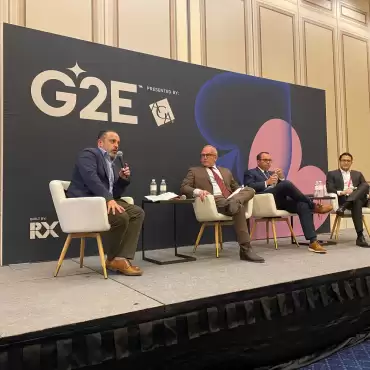With the biggest sports betting operators reportedly threatening to leave the state over the latest proposed tax-increase plan, the Illinois general assembly adjourned for the weekend at about 10pm local time on Saturday (25 May). It plans to reconvene and continue work on the budget "next week".
The latest budget proposal on Saturday afternoon included a graduated wagering tax structure that would set rates between 20% and 40%, depending on an operator’s adjusted gaming revenue (AGR).
Those with AGR of $30m per year or less would be taxed at 20% while those with AGR of $200m or more would be taxed at 40%.
Here’s a look at the proposed breakdown:
20% tax on AGR up to $30m
25% on AGR of revenue between $30m-$50m
30% on AGR of revenue between $50m-$100m
35% on AGR of revenue between $100m-$200m
40% on AGR of revenue over $200m
Top operators would see taxes nearly triple
Companies like DraftKings and FanDuel, the biggest operators in Illinois, would easily fall into the 40% tax category, based on AGR from previous years.
Smaller operators, like Circa Sports, would likely fall into the 20% tax category. Most other operators in Illinois would fall somewhere in between.
Sportsbooks operators are threatening the nuclear button. A source close to DraftKings and FanDuel says that “all options are on the table, including withdrawing from the state.”
— Hannah Meisel (@hannahmeisel) May 25, 2024
At 40%, Illinois would be the second-most expensive competitive market to do business in.
New York has a 51% tax rate and operators there are struggling to profit. The top tier of the tax on the proposed sliding scale is higher than the 35% rate that Governor JB Pritkzer initially proposed. Major operators have been lobbying against Pritzker’s proposed increase for weeks.
“The notion that you would punish the operators who invest the most and create the most jobs in the state is totally backwards,” an industry source who wished to be unnamed told iGB. “Policymakers should be incentivising operators to create jobs and invest resources on building the Illinois market. This does just the opposite.”
Pritzker’s proposal was for a flat tax rate that would more than double the current 15% tax rate. On Saturday sources said that the flat tax idea was back on the table. It seems likely there will be an increase; the question is how much.
Should Pritzker succeed in getting the increase, he would be the second governor in a legal sports betting state to do so. At the behest of Governor Mike DeWine, Ohio legislators doubled the wagering tax last July from 10% to 20%.
Other states weigh raising rates
Lawmakers in multiple states have considered wagering tax increases over the last year. But, so far, only Ohio lawmakers have taken action.
Massachusetts lawmakers last week shot down a proposal to increase the tax rate there from 20% to 51%.
Bill To Double #NewJersey Online Gambling Tax Rate Introduced https://t.co/gogiixqMpE
— iDEA Growth (@iDEA_Growth) April 11, 2024
A bill in New Jersey would increase the tax on digital wagering from 13% to 30% and on online gambling from 15% to 30%. The bill is still in committee.
Eight digital platforms are live in Illinois and, in 2023, generated $1.03bn in adjusted gross revenue. The state took in $151.4m in taxes.
Budget deadline is next month
Illinois lawmakers were scheduled to adjourn at the end of Friday (24 May), but agreed to extend the session in an effort to approve a budget. The legislature technically has until 30 June to pass a budget, but generally adjourns well before that.
According to NPR, if the budget is approved after 31 May, the number of votes needed for approval increases.
Capitol News Illinois reporter Hannah Meisel tweeted a statement from House Speaker Emanuel Welch late on Saturday:
“The house and senate are very close to an agreement on a final budget. Procedurally, the earliest an agreement could pass both chambers is next week. To let members and staff rest and spend time with family, we are adjourning for the holiday weekend and will return to complete this work.”
Lawmakers did tackle several key issues late on Friday and Saturday, advancing bills about abortion, maternal rights, carbon storage and health insurance reform.




